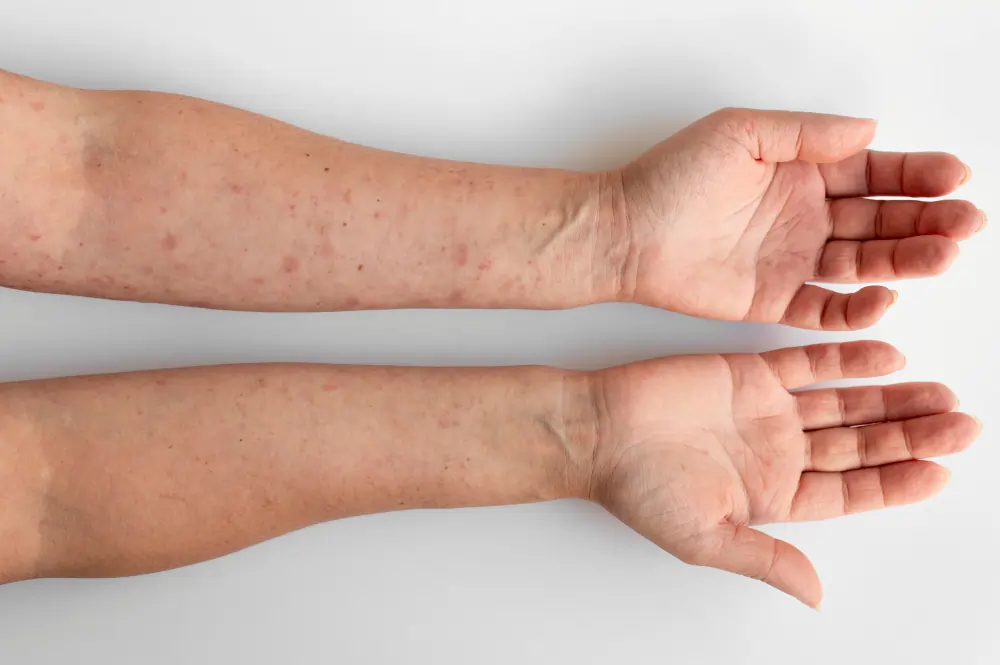
Allergies can be a significant concern for many individuals, affecting their daily lives and overall health. One common question that arises is whether antibiotics can cause allergic reactions. In this article, we will explore the relationship between antibiotics and allergic reactions, understand the symptoms, diagnose, and treat antibiotic allergies. So let’s dive in!
Understanding Allergies
Allergic Reactions Explained
Allergies are immune system responses to generally harmless substances that the body mistakenly identifies as harmful. When exposed to these substances, known as allergens, the immune system releases chemicals that trigger various symptoms. Allergic reactions can range from mild to severe and may affect different parts of the body.
Common Allergens
Allergens can vary from person to person, but some common ones include pollen, pet dander, dust mites, certain foods, insect stings, and medications. While medications are intended to treat various conditions, they can occasionally cause allergies in certain individuals.
How Do Allergies Develop?
Allergies can develop at any stage in life, and sometimes they may disappear over time. Some people may have a genetic disposition to allergic reactions, while others may develop allergies due to environmental factors. It’s essential to understand these factors to determine whether antibiotics can cause allergic reactions.
Antibiotics and Allergic Reactions
Common Antibiotics
Antibiotics are medications that are used to treat bacterial infections. They are commonly prescribed by healthcare providers to combat various illnesses. Some widely used antibiotics include penicillin, amoxicillin, cephalosporins, and sulfonamides. However, allergic reactions can occur with any type of antibiotic.
Types of Allergic Reactions to Antibiotics
Antibiotics can result in adverse drug reactions (ADRs) and hypersensitivity reactions (HSRs) through a variety of mechanisms. Allergic reactions to antibiotics can manifest in different ways. Mild to Moderate Reactions may involve symptoms such as rashes, hives, itchiness, or swelling. In rare cases, an antibiotic can cause a severe and potentially life-threatening allergic reaction known as anaphylaxis.
Risk Factors for Antibiotic Allergies
Various risk factors can contribute to the development of antibiotic allergies. It’s essential to consider these factors when assessing the likelihood of experiencing an allergic reaction to antibiotics.
Previous Drug Reactions
Individuals who have previously experienced allergic reactions to specific medications, including antibiotics, are at a higher risk of developing similar reactions in the future.
Family History of Allergies
A family history of allergies increases the susceptibility to allergenic reactions, including those to antibiotics. If your parents or siblings have a history of antibiotic allergies, it’s important to be cautious when taking them.
Environmental Factors
Exposure to environmental factors, such as pollutants and certain chemicals, may increase the risk of developing antibiotic allergies. Environmental triggers can vary from person to person.
Other Predisposing Factors
Certain conditions such as asthma, eczema, and hay fever can predispose individuals to allergic reactions, including those to antibiotics. It’s crucial to consider these factors when prescribing or taking antibiotics.
Symptoms of Antibiotic Allergies
The symptoms of antibiotic allergies can range from mild to severe. It’s essential to identify these symptoms to determine whether an allergic reaction is occurring.
Mild to Moderate Reactions

Mild to moderate allergic reactions to antibiotics may include skin rashes, hives, itchy skin, or digestive issues such as nausea or diarrhea. These symptoms may develop shortly after taking the medication.
Severe Allergic Reactions
Severe allergic reactions, known as anaphylaxis, can involve symptoms such as difficulty breathing, swelling of the throat or tongue, rapid heartbeat, and dizziness. Anaphylaxis requires immediate medical attention and can be life-threatening.
Diagnosis and Treatment
Diagnostic Methods
If you suspect an allergic reaction to antibiotics, it’s important to consult a healthcare provider for a proper diagnosis. Medical professionals may use various methods such as skin tests, blood tests, or oral challenges to determine the presence and severity of the allergy.
Managing Antibiotic Allergies
Managing antibiotic allergies involves avoiding the specific antibiotic to which you are allergic. Alternative medications may be prescribed, and it’s crucial to communicate your allergy information to healthcare providers to ensure safe and effective treatment.
Prevention and Precautions
Communicating with Healthcare Providers
When seeking medical treatment, it’s vital to inform your healthcare provider about any known allergies, including antibiotic allergies. This information will help them choose the appropriate medications and avoid any potential risks.
Medication Records and Allergy Information
Maintaining accurate medication records and allergy information is crucial to ensure the safe use of antibiotics. Be sure to keep a record of any allergic reactions experienced and make this information easily accessible.
Strategies for Prevention
Preventing antibiotic allergies can be challenging, but there are a few strategies you can employ. These include following your healthcare provider’s instructions, taking antibiotics only when necessary, completing the full course, and consulting your doctor if you’ve had a previous reaction.
Alternatives to Antibiotics
In some cases, individuals may wish to explore alternatives to antibiotics to prevent allergic reactions. While these alternatives may not always be suitable, it’s worth considering them.
Probiotics and Prebiotics
Probiotics and prebiotics can help support a healthy immune system and gut flora, potentially reducing the need for antibiotics in certain situations. Discuss with your healthcare provider whether these options are appropriate for you.
Natural Remedies and Immune Boosters
Some natural remedies and immune boosters, such as garlic, vitamin C, and zinc, may have antibacterial properties and support immune function. While they are not substitutes for antibiotics, they may complement certain treatments.
Conclusion
In conclusion, allergic reactions to antibiotics can occur, ranging from mild to severe. It’s important to recognize the symptoms, understand your risk factors, and communicate your allergies to healthcare providers. By taking the necessary precautions, you can reduce the likelihood of experiencing antibiotic allergies. Remember, if you suspect an allergic reaction to antibiotics, consult a healthcare professional for proper diagnosis and treatment.
FAQs
Q1: Can I develop an allergy to antibiotics if I’ve never had one before?
Yes, it is possible to develop an allergy to antibiotics even if you have never had one before. Allergies can develop at any stage in life, and sometimes they may appear suddenly without any previous sensitivities. If you experience any allergic reactions after taking antibiotics, it’s important to consult a healthcare professional for proper diagnosis and guidance.
Q2: Are there any over-the-counter allergy medications that can help with antibiotic allergies?
Over-the-counter allergy medications such as antihistamines may help manage mild allergic reactions to antibiotics. However, it is crucial to consult with a healthcare professional before taking any medication to ensure safety and effectiveness. It is best to follow their recommendations and seek proper medical advice.
Q3: Can I outgrow an antibiotic allergy?
In some cases, individuals may outgrow antibiotic allergies. Allergies can change over time, and the immune system may become less reactive to certain substances. However, it is essential to approach this cautiously and consult a healthcare professional for proper evaluation. They can conduct tests and guide you on whether it is safe to try the specific antibiotic again.
Q4: Can I have an allergic reaction to antibiotics years after taking them without any issues?
Yes, it is possible to have an allergic reaction to antibiotics years after taking them without any previous issues. Allergic reactions can be unpredictable, and the immune system’s response to certain substances may change over time. It is important to remember that past tolerance to a medication does not guarantee future tolerance. If you suspect an allergic reaction, seek medical advice immediately.
Q5: Are all antibiotics equally likely to cause allergic reactions?
While any antibiotic can potentially cause allergic reactions, some antibiotics are more commonly associated with allergies than others. Penicillin and related antibiotics tend to have a higher likelihood of causing allergic reactions. However, it is important to remember that individual reactions can vary, and any antibiotic has the potential to cause an allergic response. If you have a known allergy to a specific antibiotic, it is crucial to avoid it and inform your healthcare provider to ensure safe treatment alternatives.


